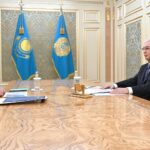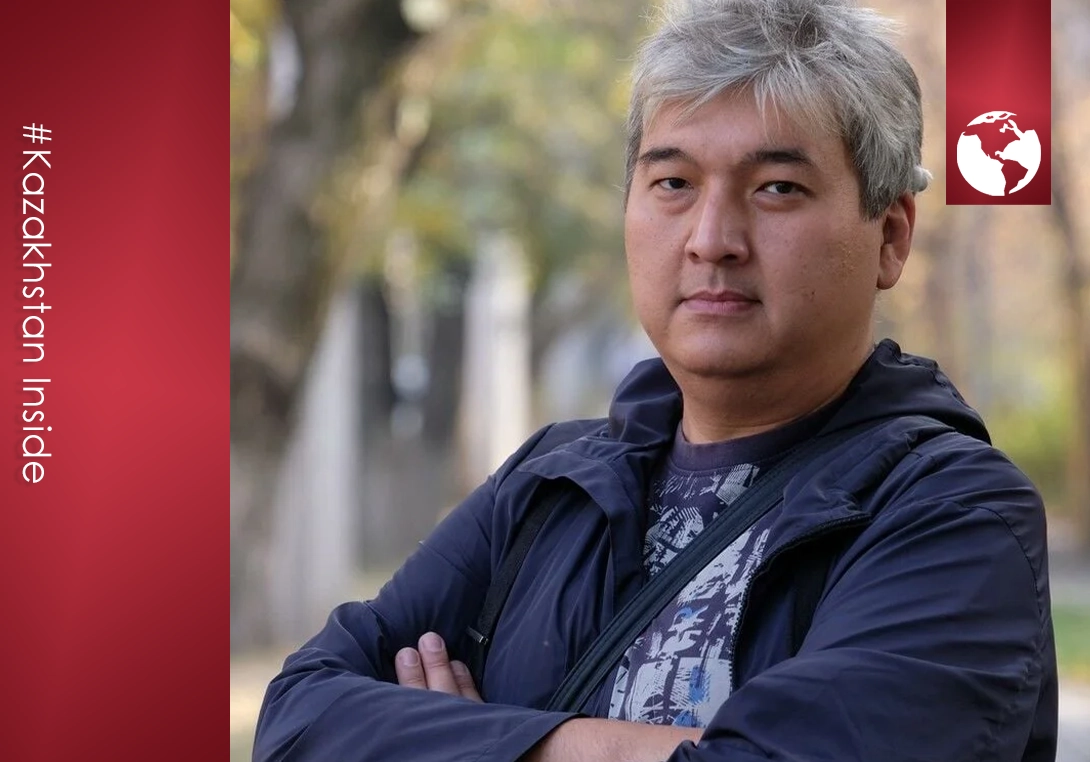How did young oligarchs divide the economy of sovereign Kazakhstan in the 90s? Renowned political analyst Daniyar Ashimbayev offers a brief historical overview.
Recently, another IMF mission visited Astana, praising reforms and all that. Let’s take a moment to recall the course of these reforms.
In 1993, the National Program for De-statization and Privatization in the Republic of Kazakhstan for 1993-1995 (Phase II) was adopted. Within its framework, state assets were consolidated into national joint-stock companies (NJC), state holding companies (SHC), and state joint-stock companies (SJC), which represented the merger of industry enterprises and factories, typically with their own industry bank. The most well-known was KRAMDS. In essence, industrial-financial groups were created.
Challenges included the breakdown of interstate connections, a crisis of non-payments, and hyperinflation.
It was expected that introducing the national currency would ensure financial stability.
However, in the spring of 1994, the government and the National Bank conducted a mutual offset, issuing not bills of exchange but sharply increasing the emission of tenge.
The exchange rate fell, burying the industry beneath it.
Before the economy could adapt, the new government urgently began «demonopolization,» dismantling all state holdings within a year and selling them off in parts. All of this was accompanied by lamentations about the disastrous condition of the plants. As a result, metallurgical plants were taken under control and then bought by trading companies.
After the change of management, the financial situation suddenly improved, although it was quite apparent that traders were simply accumulating previous earnings from exporting their own products.
Simultaneously, with the efforts of the National Bank, sectoral banks were dismantled, and in their place came «Kazkomm,» which took control of «unprofitable» national companies. And with its arrival, it suddenly became clear that these companies were quite profitable.
Enterprises in the food industry, especially sugar and distilleries, quickly changed hands.
As for the oil industry, I think it doesn’t need an explanation.
The focus on privatization «on individual projects» and the transfer of national companies (state monopolies) under the trust management of «Kazkomm» and other bold guys essentially disrupted the «peak privatization» that was supposed to make the population owners. Rarely did labor collectives become (and remain) shareholders.
Those enterprises that were not of interest to the emerging oligarchy were mostly sent to the chopping block, and on their territories, trade centers, office buildings, markets, and residential complexes grew in the subsequent period.
Of the former hundreds and thousands of enterprises, except for metallurgy, oil, uranium, and chemical industries, it seems that only 3 or 4 plants survived.
In 1995, the government and the same «Kazkomm» carried out the now forgotten «bill scheme,» after which the owners of elevators and flour mills suddenly changed, and collective farms and state farms received a third powerful blow. First, the emphasis was on «effective farming,» and second, the bankruptcy of «Kazagroprombank.» Later, grain traders became the main players, swiftly taking over the production and export of wheat, ultimately leading to large agricultural enterprises being the optimal form of economic organization.
However, property redistribution processes in agriculture are ongoing regularly. There are isolated examples of old farms surviving and adapting.
Bankers and financiers privatized not only budget flows but also the concept of «technocrat,» taking it away from engineers and other industry professionals. The economy survived the 90s, and then came the oil boom, which poured petrodollars into the economy and social sphere, making everything except raw material exports, import trade, and housing construction unprofitable.
Then came the global financial crisis, to which all socio-economic problems are still attributed.
Few countries had the courage to try to break free from the control of the global economy. Kazakhstan didn’t even try.
The key players in the new economy became raw material exporters (or rather, their owners), state monopolies (or rather, their management), and banks (and the closely related construction lobby). It is worth noting that the most lucrative pieces have long been incorporated not only into the transnational economic system but are also protected by international law, which, according to Article 4, Clause 3 of the Constitution, takes precedence over national legislation.
Therefore, reforms are carried out in the plane of IMF recommendations…









